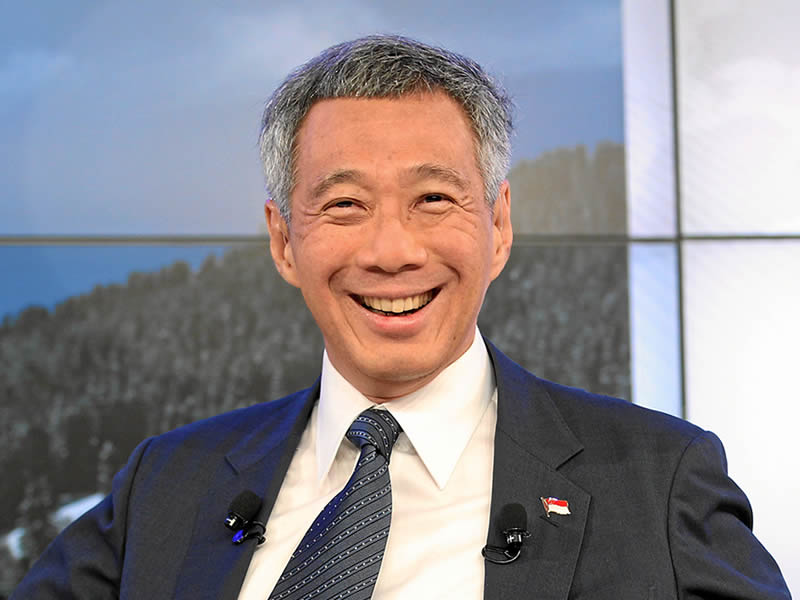The Australia-ASEAN Special Summit to be held in Sydney in mid-March is surely the least talked about and yet most important regional forum ever hosted by this country.
Leaving aside the macro-level economic and geopolitical issues that are its focus, the summit presents huge opportunities for Australian tech and innovation. This is surely not lost on anyone.
The historical entrails of the Australia-ASEAN relationship are deep. But until very recent times, the Australian tech industry has seen much of the region as a flyover.

It is worth noting that the Singapore – as the 2018 chair of ASEAN – has identified two clear themes for its 12-month term as “innovation and resilience.”
Across the full spectrum of tech and innovation, from cybersecurity to AgTech and food security, to data science and climate change, to advanced manufacturing, data science and digital supply chains, Singapore’s stewardship of ASEAN will press for adoption and development across the region.
ASEAN’s chair revolves annually, and with Singapore at the helm in 2018 the themes have a distinctly tech feel. In fact Singapore’s focus for ASEAN aligns with agreements that Singapore signed with Australia in mid-2017.
The first, on innovation, aimed to increase collaboration and joint funding to promote advanced manufacturing and data science to address the challenges of future economies.
And the second on cyber-security, aimed to build on existing cooperation to combat cyber-threats and support regional capacity building.
The fact that Singapore is now pressing these areas as priorities for regional development is a good thing.
Singapore Prime Minister Lee Hsien Loong told a press conference to mark the start of its term as chair that it would “do its best to take the group forward” focusing on the themes of resilience and innovation.
“We hope during Singapore’s term as chair, we will start some ASEAN projects that will strengthen our collective resilience against common threats such as terrorism, cybercrime, and climate change,” Mr Lee said.
“We also hope to promote schemes that capitalise on innovation, to help ASEAN economies to innovate and to use technology, to make us a more dynamic and connected community.”
Australians could be forgiven for thinking ASEAN has been overlooked as a result of our government obsession with the China relationship. But the ties to the ASEAN organisation has deepened substantially in recent years, if not the bilateral relationships with all of its member states.
ASEAN was founded in 1967. Australia became the grouping’s first Dialogue Partner in 1974. And more recently ASEAN elevated the Australia relationship to Strategic Partner in 2014 (also the first country to do so).
Under the new relationship, Australian and the ASEAN leaders have committed to holding a biennial leaders meeting. The last was held in Laos two years ago. When the leaders of the ten ASEAN member countries arrive in Sydney for a weekend meeting in early March, it will mark the first time the Australia ASEAN Special Summit has been held in this country.
The centrepiece of the summit is the leaders’ meeting and retreat, while a Business Summit, SME Summit and Counter-Terrorism Conference will be held in the week preceding.
It doesn’t help out industry that our fragmented industry representation means we do not have a group powerful enough to get a significant voice at the table of these macro social and economic events.
The Business Summit attach ASEAN-Australia Special Summit is stitched up by the Business Council of Australia, the Australian Chamber of Commerce and Industry, the Australian Industry Group and the Export Council of Australia.
These organisations are not great in promoting the interests of the growth end of the local tech sector that has emerged in recent years.
Anyway. Back to the special summit. The leaders of 10 Southeast Asian neighbours are coming to Sydney in a month to talk at the highest levels about matters of mutual interest and benefit. There are opportunities for engagement for the tech and startup communities among the delegations that will arrive with these leaders.
There are 660 million people who live in the ASEAN member countries with a combined GDP of $3.4 trillion. The bloc is growing at an average 4.6 per cent.
There are 100,000 students from ASEAN countries studying in Australia at any given time. More than 890,000 Australians claim an ASEAN heritage.
The Australian relationship with Singapore is about as close any we have. As if it needs saying, we should be celebrating our close ties to ASEAN neighbours and cheering the arrival of their leadership delegations in to Sydney in March.
And the tech and startups might want to use the event – and the ASEAN-Australia week of activities that precedes it – to better understand these important markets.
Do you know more? Contact James Riley via Email.

